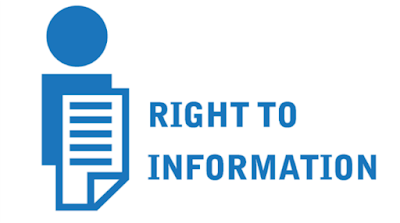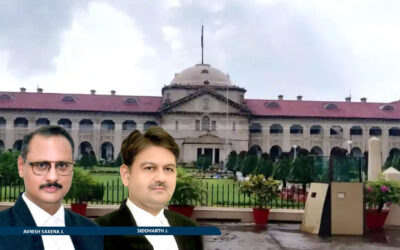RIGHT TO INFORMATION – PART THREE

Right to information act2005 (RTI Act) Section under 3 It is a very important stream. This section mentions the right to information. This is the same section and is the right for which India has been struggled for years and this act has been coined for this right. Section under this article 3 The interpretation of the courts is being presented.
This section gives all Indian citizens the right to get information from public authorities. Citizen under the Act refers only to Prakrit and not from a judicial person, Company or other corporate bodies.
moreover, Citizens are not required to give reasons for demanding specific information from a public authority and cannot ask the applicant under the Public Information Officer or Public Authority Act as to why they need specific information.
If more than one person demands the same type of information, So it should be made available to all requestrs by public information officers. The citizen has also been given the right to demand that information, Which has already been revealed according to the self-contact expectations of the Act. It should be provided to a citizen, Which applies for such information in public authority.
This section imposes the right to information to the citizens and thus can only demand the citizen of India.
Right to Information Article of Constitution 19 (1) (A) Under the constitutional familiarity under).
The Act gives the right to information to all citizens and not all ‘Individuals‘ To.
The citizen has the right to get that information, Which can be given to Parliament or State Legislature. Under this section, only citizen can demand information and not the company, Which is corporate.
The civilian of India can receive information, the general secretary of the Employees Union is not a citizen. This thing MDN Panicer vs Rourkela Steel Plant, It is said in case of
Union or company cannot be considered citizens, The post holder of the political party is not covered under the Act. Right to information is not an eternal and blocked right, but such rights are president of the provisions of this Act.
Basic Rights:-
Bhagat Singh vs Chief Information Commissioner2008 In case of that-
Right to information is a basic right to information. Exemption for free is only provided then, If it would be in the process of exploration or prosecution of criminals. The authority stopping the information should show the solution for it.
Right to information is the fundamental right of a citizen, It cannot be used arbitrarily to meet a person’s demands.
Freedy version:- The principle of the universal version is not applicable and there should be no objection in providing the information available with the public authority., Till that stream 8 (1) (2) Is not related to cadre mentioned under.
SP Arora vs State Information Commission, AIR 2009 It has been said in the case of-
The right to information to expand the right to ask for information cannot be expanded to the extent that if the file is not available, So steps will be taken to repay the file and provide information.
Information related to the enforcement of the Act:-
“The records “include any document or file. Neither the definition section, Neither the provision of the Act assumes that the prior information of the Act cannot be provided to the citizen. Only prescribed restriction stream 8, 9, 11 More 24 is under the. Here too, no provision has been made for providing recorded information before the enactment. Really stream 6 Empower citizens and stream to demand information 7 Except for that it cannot be done, And she also imposes duties and responsibilities to provide it on limited grounds and for the reasons mentioned.
Prakrit person entitled to information:-
Individuals applying for information under the Act should apply as Prakrit and individual persons (citizens). Corporate bodies and judicial persons cannot apply for information under this Act. If the person applies for information before the public authority as a representative of the corporate body, So he is entitled to information under the Act.
Use of Rights:-
Right to information can be exercised by citizens against private institutions, Which has been validated by the Council of Secondary Education and is receiving aid grant by the state government. Dhara Singh Girls High School, Ghaziabad vs State of UP,
2008 CAR 343 (It is said in the case of Allahabad).
There is no harassment to obtain:-
No harassment should be done by those employees, Those who are ensuring information under the provisions of the Act, Such such work of harassment should be opposed, If the purpose of increasing the free flow of information between the citizens and the government will be affected adversely.
Duties of civil servants:-
Oral instruction, Order, Do not work on suggestions. Instructions on them file, Order etc. should be recorded, If they work on oral instruction. Working on oral instructions without recording them also thwarts the Act and provides opportunity to corruption.
The right to information about the bank account, the person has the right to know the details about the savings bank account and fixed deposit receipt by his father and mother in the bank.
The right of the candidate- the candidate has the right to see the answer book and the answer book should be provided to it, this is Pritam Rouge vs. University of Calcutta, AIR 2008 Calcutta 118।
Information related to information answer sheets should be provided regarding the answer-letters. Because the examiner who discharges folk work is responsible for the people and it will fulfill the public purpose.
Revolution of answer books:-
Dheeraj Pandey vs Madhya Pradesh State 2014 In case of the case of no reliable and specific facts can be ordered to be ordered.
The reason for information is not necessary:-
Sarup Singh Hariya Nayak vs State of Maharashtra, AIR 2007 Bombay 121 The information should be provided by the person and such a person is not obliged to give reasons for the information he ensure.
Expectation:- The person demanding information is expected to clearly specify the requisite information and if necessary, So it should also demand for inspection of coherent records and files so that the expected information is identified.
Information will be related to public authority:-
EPST information should be related to a public authority and not related to a private body.
Inspection of records:-
The applicant is entitled to inspect the records, If two of the information is not resolved. If there is no solution to the information given to the applicant and there is no information of information, So it can apply for inspection of records before the competent authority.
Parents of inspection of records should be obtained, When the applicant realizes that the information given is incomplete and impure. This fact Dr. Poonam Nagpal vs. Department of Education, Is given in the suit of.
Inspection of files includes inspection of files in the right to information.
Case of institutional determination- in case of constitutional assessment, The applicant is entitled to all the information for all reports, Which is prepared in public interest.
A. Mahendra vs Rohebilance Council of India This idea has been given in the case of.
Application in front of:-
If the subject of information is related to the state, So the application will be filed before the state authority.
There is no second application on the same subject, When the case is nothing but misuse of the beneficial provision of the Act before the Supreme Court.
The manifestation of the information related to the miraculous public authority is the guide, If the ancestors fall under the area under the Information Act.
Information by legal units:- Union or Participation firm or Hindu undivided family or from any other group of individuals, As a body or otherwise formed, The application on the appeal should be accepted and administered.
Customer entitled for information:- Consumer is entitled to get details related to ration shop run by cooperative society. AC Sekar vs the Deputy Registrar of Cooperative Society, Thiruvannamalai circle, AIR 2008 Madras 224 This decision has been given in the suit of.


